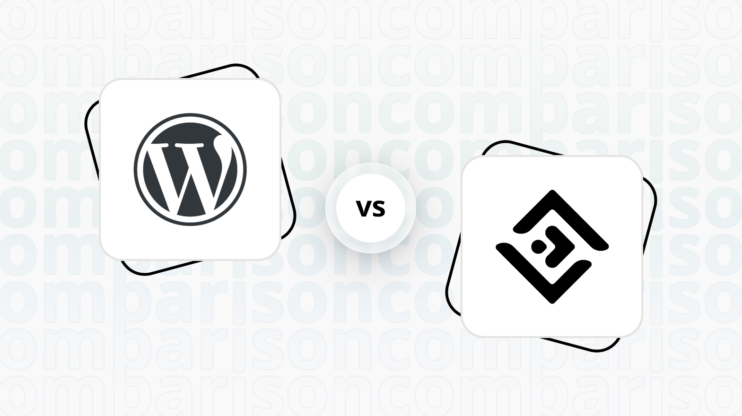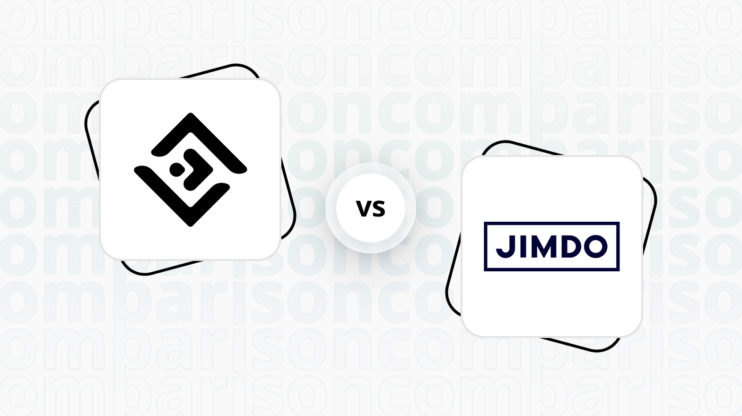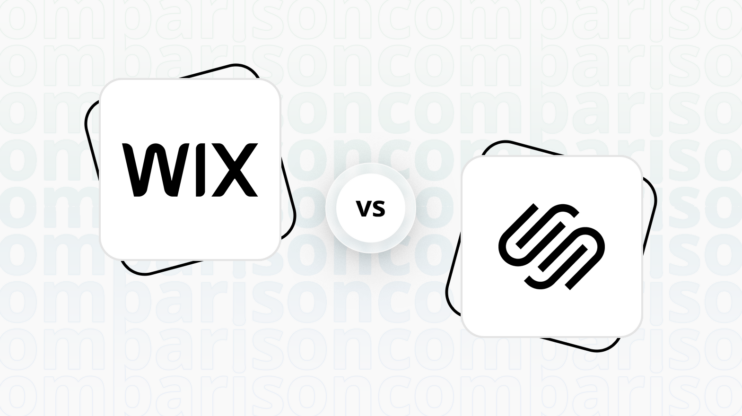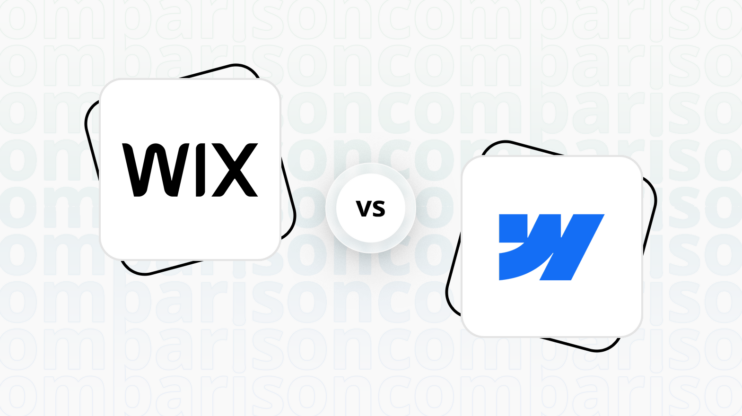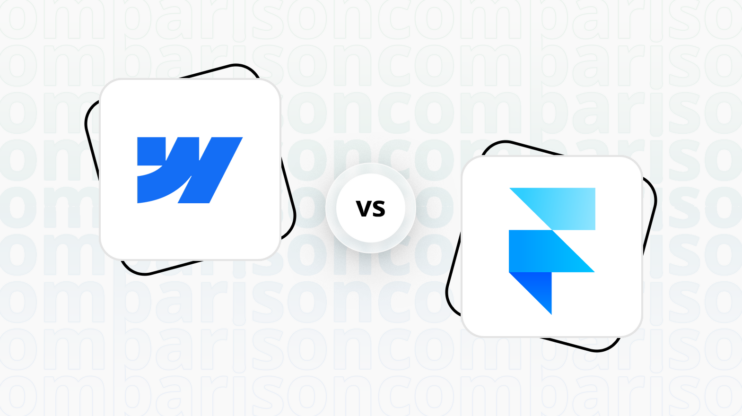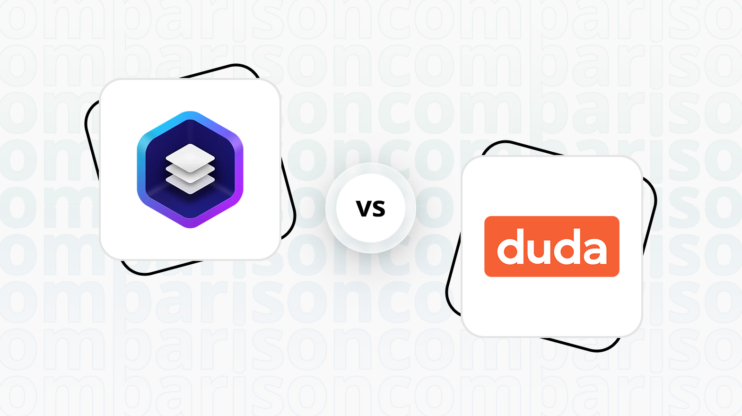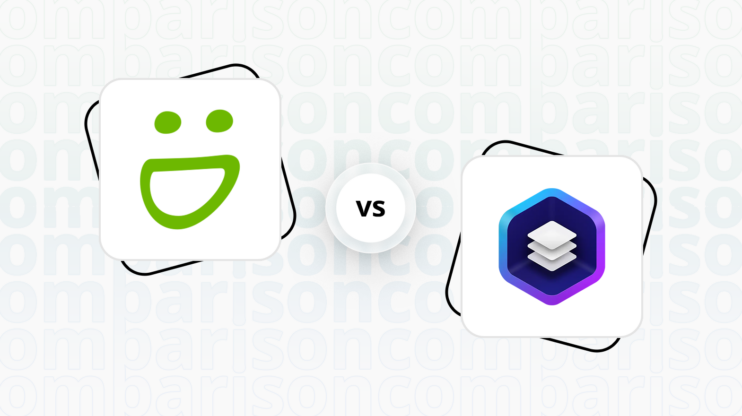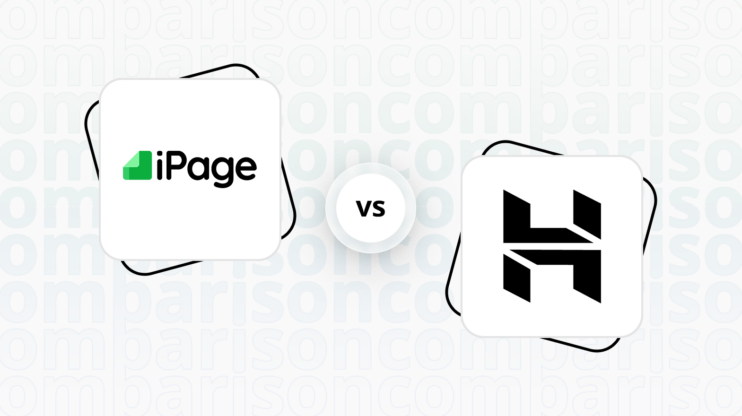Final verdict
WordPress and Jimdo offer distinct advantages, catering to different user needs with their unique features.
-
WordPress (Overall Grade: 7.1/10)
excels in customization and flexibility, making it the preferred choice for users seeking extensive design options and functionality through plugins. It’s particularly suited for those with some technical knowledge or those willing to invest time in learning. WordPress’s open-source nature allows for a vast ecosystem of themes and plugins, ideal for blogs, business sites, and online stores. -
Jimdo (Overall Grade: 7.2/10)
shines with its simplicity and ease of use, appealing to beginners and users looking for a straightforward website-building experience. It offers a user-friendly platform with enough features for small businesses and personal sites, emphasizing quick and hassle-free website creation.

|

|
|
|---|---|---|
|
Design functionalities & templates |
9.0 |
7.2 |
|
Ease of use |
7.2 |
8.0 |
|
Ecommerce |
8.4 |
7.0 |
|
Website Editors |
8.5 |
7.8 |
|
Product testing options |
8.1 |
6.4 |
|
Price |
5.9 |
7.5 |
|
Hosting quality |
0 |
6.7 |
|
Website speed optimization |
6.5 |
7.6 |
|
Plugins and integrations |
8.8 |
7.4 |
|
Marketing features |
8.0 |
7.2 |
|
Customer support |
5.0 |
6.8 |
|
Security |
6.7 |
8.3 |
|
AI capabilities |
6.1 |
6.0 |
|
User Management |
8.8 |
5.8 |
| Overall |
7.1 |
7.2 |
Best for ecommerce
 8.4
8.4
 7.0
7.0
Verdict
: For those seeking extensive customization and a wide range of features, WordPress is the superior choice. Jimdo, however, is ideal for beginners and small businesses looking for simplicity and ease of use.
-
WordPress
: Offers a robust ecommerce solution with WooCommerce, supporting extensive customization, multiple payment gateways, and a vast plugin ecosystem. It’s best suited for those who need a comprehensive online store. -
Jimdo
: Provides a straightforward, user-friendly ecommerce solution with built-in features. It’s perfect for those who prioritize simplicity and quick setup over complex customization options.
Best for informational & business websites
 9.2
9.2
 7.4
7.4
Verdict
: WordPress is the superior choice for informational and business websites, offering unparalleled customization and a vast array of themes and plugins. Jimdo, while user-friendly, doesn’t match WordPress in flexibility or depth.
-
WordPress
: With a score of 9.2, WordPress stands out for its extensive customization options and a vast selection of themes and plugins. It’s ideal for users looking to create complex, feature-rich informational or business websites. -
Jimdo
: Scoring 7.4, Jimdo is praised for its simplicity and ease of use, making it a good option for those who prefer a more straightforward approach to website building. However, it lacks the depth of customization and variety offered by WordPress.
Detailed comparison
Design functionalities & templates
Design FunctionalitiesRepresents how well each platform allows for creative design and customization of websites.Score Components:
- Template Variety (30%): Range and quality of design templates.
- Customization (30%): Flexibility and options for design alterations.
- User Interface (20%): Ease and intuitiveness of the design process.
- Responsiveness (10%): Adaptability to different devices and screen sizes.
- Innovation (10%): Unique design features and tools.
 9.0
9.0
 7.2
7.2
🏆
Winner: WordPress.
If you’re looking for a platform that offers more extensive and flexible design options, WordPress is the preferred choice.
WordPress offers an extensive variety of templates and designs, catering to a wide range of website types beyond just blogs or ecommerce. Its open-source nature allows for high customization and creative freedom, appealing to diverse user needs. While WordPress itself doesn’t sell premium templates, numerous third-party theme shops offer sophisticated and specialized design choices, expanding the possibilities for users.
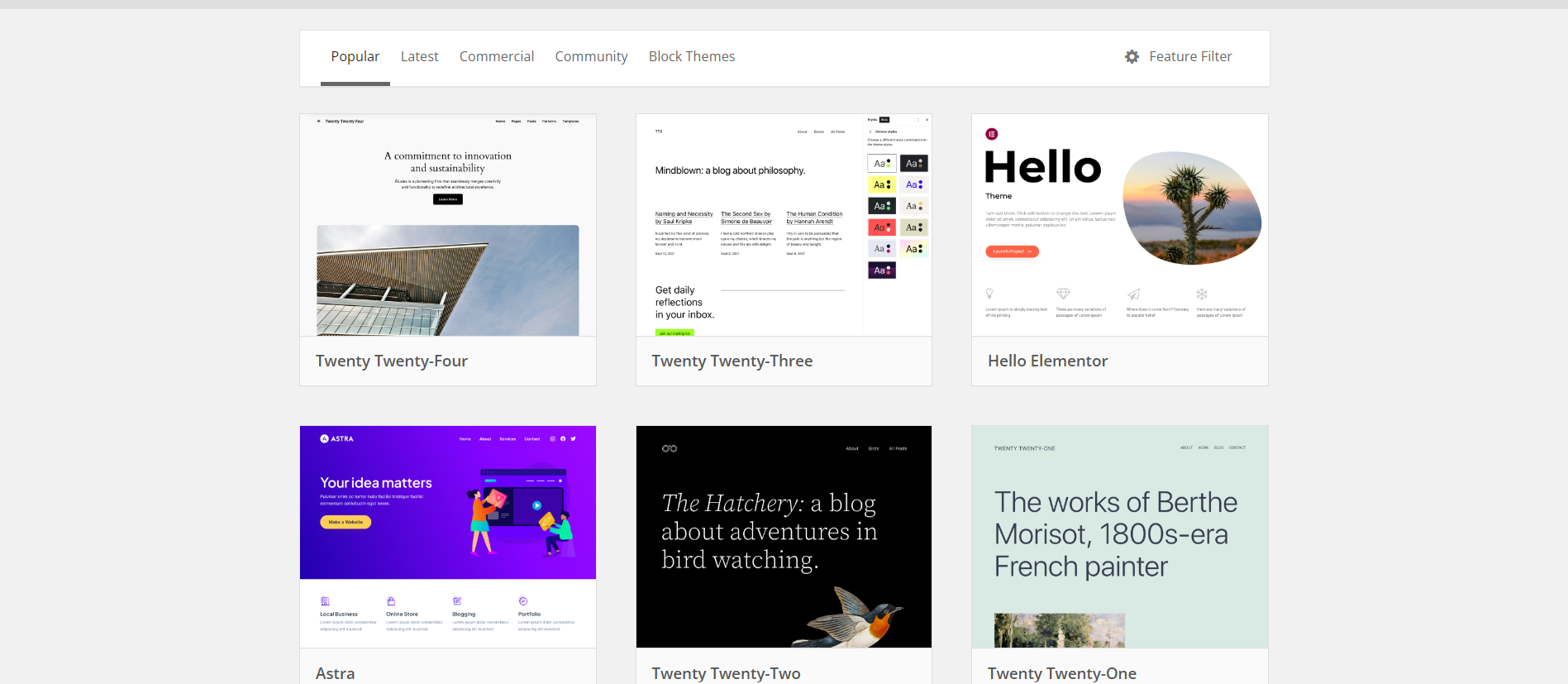

Compared to WordPress, Jimdo offers a diverse range of templates suitable for various industries and user preferences, with options to preview and select templates easily. The platform allows flexibility in changing templates for existing websites and also provides a “Blank Template” for custom designs, catering to both beginners and advanced users.


Get a head start on website creation with AI
Create a custom website tailored to your business needs 10X faster with 10Web AI Website Builder!
Ease of use
Ease of useReflects the platform’s overall user-friendliness.Score
Components:
- Learning curve (40%): Quickness and ease of getting started.
- Interface design (30%): Simplicity and intuitiveness of layout.
- User guidance (20%): Quality of tutorials and support.
- Flexibility (10%): Adaptability to various user skills.
 7.2
7.2
 8.0
8.0
🏆 Winner: Jimdo
. With a score of 8.0, Jimdo is praised for its simplicity and user-friendliness, especially for beginners. WordPress, scoring 7.2, offers great flexibility and power, but it can be less intuitive for beginners compared to simpler website builders. If ease of use is a priority, Jimdo is the clear winner in this category.
Learning Resources
🏆 Winner: WordPress
. Both platforms offer solid learning resources, but WordPress stands out with its vast array of detailed documentation, community forums, online tutorials, and courses. This extensive support network is beneficial for users of all skill levels, from beginners learning the basics to advanced users seeking to enhance their expertise.
For ecommerce
EcommerceMeasures the platform’s effectiveness in supporting online business activities.Score Components:
- Ecommerce themes and templates (20%): Variety and design of templates.
- Product management (25%): Ease of managing and organizing products.
- Payment options (25%): Variety and convenience of payment methods.
- Ecommerce features (20%): Features for managing an ecommerce store.
- Integration (10%): Compatibility with external e-commerce tools and services.
 8.4
8.4
 7.0
7.0
WordPress, with its WooCommerce plugin, offers a robust ecommerce solution with extensive customization options, multiple payment gateway support, and a vast plugin ecosystem. On the other hand, Jimdo provides a more straightforward, user-friendly ecommerce solution with built-in features, making it suitable for beginners and small businesses.

|

|
|
|---|---|---|
|
Ecommerce themes and templates |
9.2 |
6.5 |
|
Product page customization |
9.0 |
6.8 |
|
Payment processing and commissions |
7.5 |
7.5 |
|
POS capabilities |
6.5 |
5.0 |
|
Payment gateways |
8.5 |
7.0 |
|
Product numbers |
7.0 |
6.0 |
|
Additional ecommerce features |
8.0 |
6.5 |
WordPress ecommerce features:
- WooCommerce Integration
- Multiple Payment Gateway Support
- Abandoned Cart Recovery
- Ecommerce Analytics
- SEO Optimization Tools
- Extensive Plugin Ecosystem
Jimdo ecommerce features:
- Product details and variations
- Inventory tracking
- No transaction fees
- Discount codes and promotions
- Email marketing
Ecommerce themes & templates
WordPress offers hundreds to potentially thousands of ecommerce and WooCommerce specific themes and templates, both free and premium. This vast selection allows users to find a theme that perfectly fits their brand and business needs. Jimdo, on the other hand, offers a diverse range of pre-designed ecommerce templates that are mobile-friendly and easy to customize with its drag-and-drop interface.
Product page customization
WooCommerce on WordPress offers extensive customization for eCommerce product pages, including product images, descriptions, add-to-cart buttons, product tabs, upsells, and related products. However, heavy use of plugins may affect site performance. Jimdo allows users to easily customize various elements of a product page, including text, images, layouts, and design elements. It also offers additional features such as SEO tools and mobile responsiveness.
Payment processing
WordPress doesn’t handle payments directly but offers plugin options for payment processing, including popular gateways like PayPal, Stripe, Authorize.Net, and Square. Users can choose a gateway based on transaction volume, currencies, fees, and security. Jimdo facilitates payment processing through various popular gateways like PayPal, Stripe, Mollie, and more, depending on your location and plan. While Jimdo doesn’t impose transaction fees, individual payment gateways may have their own charges. Certain Jimdo plans may offer free transactions per month, providing flexibility for users based on their plan details.
Website Editors
Website EditorsEvaluates the platforms’ website building and editing capabilities.Score Components:
- Customization tools (40%): Range and power of editing features.
- Editor usability (30%): User experience within the editor.
- Design flexibility (20%): Freedom in layout and design changes.
- Update and maintenance ease (10%): Simplicity of updating and maintaining the site.
 8.5
8.5
 7.8
7.8
🏆
Winner: WordPress
. WordPress, with a score of 8.5, offers a user-friendly interface with block-based editing, extensive styles customization, template management, page editing/creation, distraction-free modes, versatile saving options, and accessibility for users of varying skill levels. It provides a WYSIWYG (What You See Is What You Get) interface, with a Design panel on the left and a live preview on the right. You can edit styles, manage templates and pages, and use various blocks for customization. Changes can be applied globally, including Header and Footer templates. The editor also offers features like undo/redo, List View, Command Palette, and customization tools.
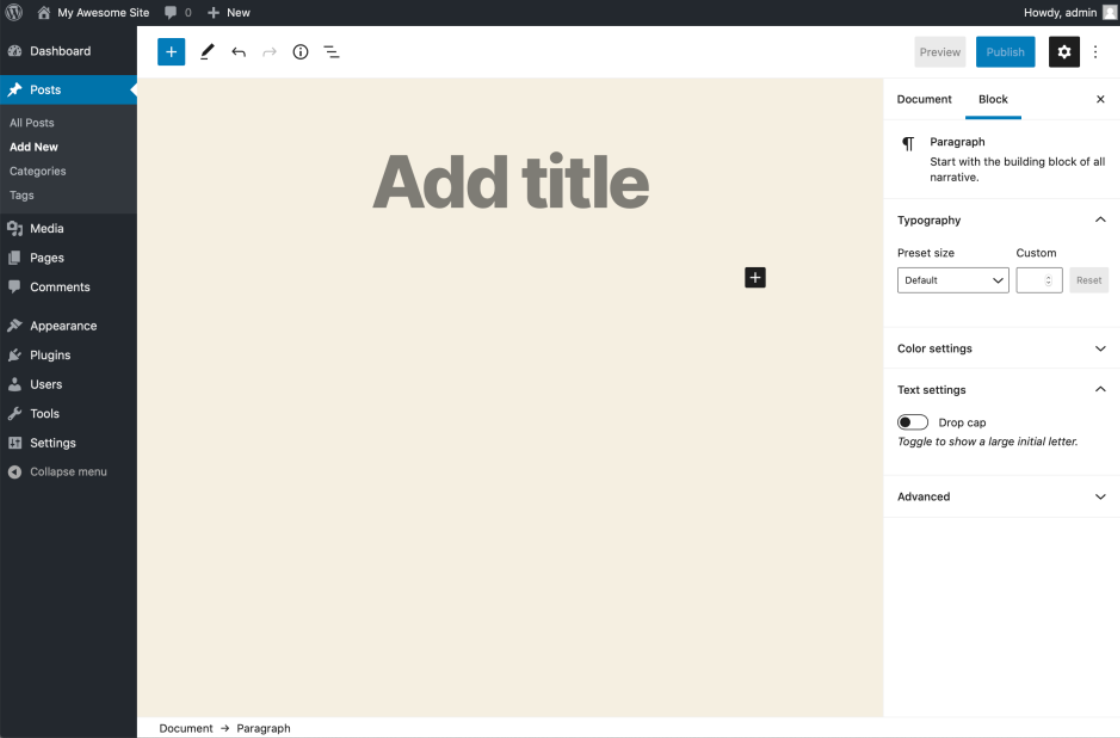
Jimdo’s editor, scoring 7.8, is designed to accommodate both novice and experienced users through its two main modes: Jimdo Dolphin and Jimdo Creator. Dolphin, an AI-driven tool, is ideal for beginners and creates websites based on user responses to a series of questions, streamlining the web design process. On the other hand, Jimdo Creator provides a more traditional website building experience with greater customization options, including a drag-and-drop editor and HTML widgets, catering to users seeking more control over their site’s design.
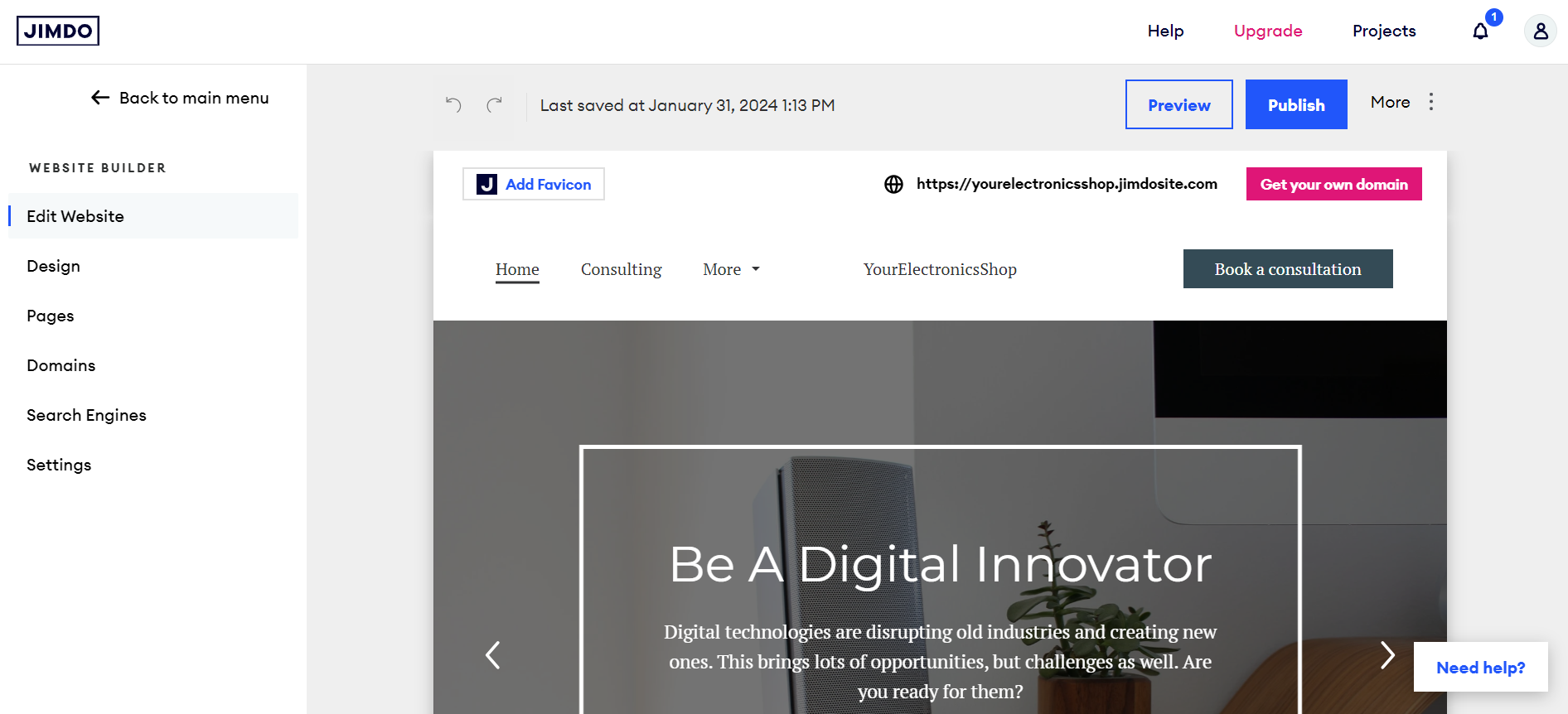
Mobile editor/app
 8.1
8.1
 8.0
8.0
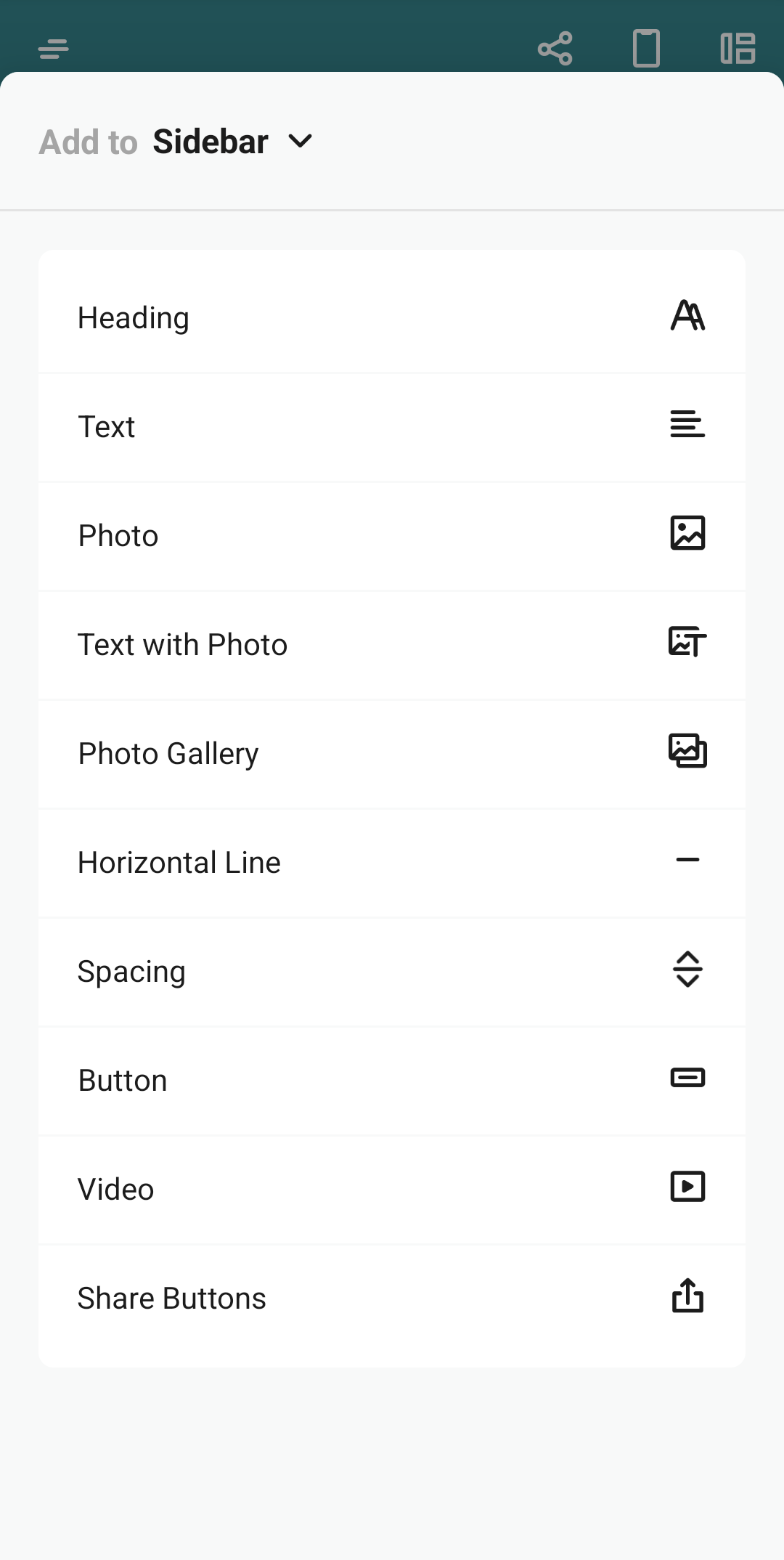
🏆
Winner: WordPress
. Both WordPress and Jimdo offer mobile apps that allow users to manage their websites on the go. WordPress’s mobile app allows users to create and edit posts, manage comments, schedule content, and analyze website traffic. However, it has some limitations compared to the web-based editor, including fewer advanced options, restricted code access, and limited design customization.
On the other hand, Jimdo’s mobile app allows users to create and manage their websites directly from their smartphones or tablets. This app provides a convenient way to edit and update your site on the go, including adding or modifying content, adjusting design elements, and managing your online store. Despite its user-friendly interface and design customization options, Jimdo’s mobile app scores slightly lower than WordPress’s mobile app.
In summary, WordPress receives a higher rating due to its comprehensive features and advanced options, while Jimdo is user-friendly and convenient but may lack some advanced features.
Product testing options
Product Testing OptionsAssesses the options for trying out platform features before commitment.Score Components:
- Trial quality (40%): Extent and usefulness of the trial or free version.
- Feature accessibility (30%): How many features are available to test.
- Trial duration (20%): Length of the trial period.
- Ease of transition (10%): Smoothness of moving from trial to paid plans.
 8.1
8.1
 6.4
6.4
Overall Result
:
WordPress wins
with a score of 8.1 against Jimdo’s 6.4. WordPress, being an open-source CMS, offers a free version but does not provide a trial version or the possibility to test premium features. On the other hand, Jimdo, while also offering a free version, does not provide a trial version but allows users to test premium features by subscribing to any of the paid plans. Jimdo also offers a 14-day money-back guarantee for all paid plans.

|

|
|
|---|---|---|
|
Free Plan |
Yes (open source software) |
Yes |
|
Trial Duration |
No | No |
|
Testing Premium Features |
No | Yes, with paid plans |
|
Money Back Guarantee |
Not applicable |
14-day for all paid plans |
Price
PriceLooks at the cost-effectiveness and value for money of each platform.Score Components:
- Plan value (40%): What each pricing tier offers.
- Transparency and clarity (30%): Clearness of pricing structures.
- Flexibility of plans (20%): Range of options to suit different budgets.
- Hidden costs (10%): Additional expenses not included in the plan.
 5.9
5.9
 7.5
7.5
Jimdo offers a range of price plans, including a free option, while WordPress is free but requires separate hosting and domain services.

|

|
|
|---|---|---|
|
Free |
Free Plan ($0/month): WordPress is open source software that is free. WordPress does not provide hosting services; so, it is necessary to purchase a domain, web hosting, and website builder subscriptions separately. While WordPress lacks built-in ecommerce, plugins like WooCommerce offer a solution. WordPress offers an extensive variety of templates and designs. WordPress lacks a built-in AI-assisted builder, but its open-source nature allows for an ecosystem of plugins and themes incorporating AI for website building. |
Play ($0/month): Basic, entry-level plan offering limited features, ideal for testing Jimdo’s capabilities. Includes 500MB storage and up to 5 website pages. Limited ecommerce functionality. |
|
$0-$10 |
No offering at this amount. |
Start ($9/month): Aimed at small projects or businesses just starting out. Provides 5GB of storage and up to 10 website pages, along with SEO tools for online visibility. Not directly focused on ecommerce. Value for price: 6.0 |
|
$10-$15 |
No offering at this amount. |
Grow ($15/month): Targets growing businesses needing more space and features. Offers more flexibility but still lacks dedicated ecommerce capabilities compared to the Business plan. Provides 20GB bandwidth with up to 50 website pages. Value for price: 7.0 Basic ($15/month): Up to five forwarding email addresses, up to 10 website pages, convenient payment methods. Value for price: 6.5 |
|
$15-$20 |
No offering at this amount. |
Business ($19/month): Designed for small to medium-sized online stores, offering ecommerce features without transaction fees. Includes selling on Facebook and Instagram, and various payment options. And up to 50 website pages. Value for price: 8.0 |
|
$30+ |
No offering at this amount. |
VIP ($39/month): Provides comprehensive features for large or expanding online stores, including unlimited storage and priority support and unlimited website pages. Includes professional design review and no transaction fees. Value for Price: 9.0 Unlimited ($39/month): Offers unlimited bandwidth and storage, up to 20 forwarding email addresses and unlimited website pages. Includes priority support and professional design reviews. Value for Price: 9.5 |
location. As a result in rare cases the prices displayed here can differ from the ones you see on their
websites.
Hosting quality
Hosting
qualityExamines the reliability and performance of the hosting solutions.Score Components:
- Uptime (40%): Consistency and reliability of website availability.
- Speed (30%): Loading times and performance.
- Bandwidth and storage (20%): Sufficiency of resources provided.
- Data centers (10%): Quality and distribution of hosting infrastructure.
 0
0
 6.7
6.7
Winner: Jimdo
. Jimdo offers hosting included in all of their plans, with storage from 500MB and 2GB bandwidth on the free plan, up to unlimited storage and bandwidth on the highest plan. Jimdo also provides free daily backups to ensure data restoration. On the other hand, WordPress does not directly provide hosting services, hence its hosting quality score is 0.

|

|
|
|---|---|---|
|
Do they offer hosting? |
No, WordPress itself does not directly provide hosting services. | Yes, included in all of their plans. With storage from 500MB storage and 2GB bandwidth on free plan, up to unlimited storage and bandwidth on highest plan. Jimdo provides free daily backups to ensure data restoration. |
|
Data Centers: |
Data centers depend on hosting providers | While Jimdo doesn’t publicly disclose the exact locations of its data centers, they utilize a distributed network of highly secure and reliable facilities spread across multiple regions. |
|
Type of hosting: |
WordPress itself isn’t a hosting platform, there are various options when choosing the type of hosting for websites built with WordPress, such as: Shared Hosting, VPS Hosting, Dedicated Server Hosting, Managed WordPress Hosting, Cloud Hosting | Shared Hosting, Cloud Hosting, Managed Hosting |
|
Uptime: |
Uptime & uptime guarantee depends on hosting provider. | 99.5% |
|
Uptime Guarantee: |
Depends on hosting provider | No |
Website Speed Optimization
Website Speed OptimizationEvaluates optimization of website loading timesScore Components:
- PageSpeed Score (30%): Google’s score indicating performance optimization.
- Loading Time (30%): The average time until a website is fully interactive.
- Mobile Optimization (15%): Optimization effectiveness for mobile devices.
- Resource Optimization (15%): Optimizing images, scripts, and other heavy resources.
- CDN Usage (10%): Use of CDN to enhance speed across geolocations.
 6.5
6.5
 7.6
7.6
🏆 Winner: Jimdo
Both WordPress and Jimdo prioritize website performance and page speed, but Jimdo has a higher Website Speed Optimization score.

|

|
|
|---|---|---|
|
Focus |
Plugins, Themes |
Content Optimization, Mobile Responsiveness |
|
Performance Tools |
Core Web Vitals, WP Rocket, Hummingbird |
CDN, Caching |
|
Key Strategies |
No specific strategy, relies on resources |
Content Optimization, CDN, Image optimization, Caching, Mobile Responsive design |
|
Load Times |
Varies widely, dependent on optimization |
Varies widely, dependent on optimization |
|
Page Speed Scores Range |
Scores vary; influenced by apps, images |
Scores vary; influenced by plugins, images |
|
Core Web Vitals Improvement |
Analyze CWV, optimize images, minimize plugins, use lazy loading, employ a CDN |
Optimizing LCP, Enhancing FID, Improving CLS |
WordPress, an open-source content management system, does not have a specific strategy for website speed optimization. However, it provides numerous resources on how to optimize your website. These resources include tools like Core Web Vitals, WP Rocket, and Hummingbird. WordPress also suggests minimizing the use of plugins, optimizing images, using lazy loading, and employing a CDN for faster page loads. The load times and PageSpeed scores for WordPress websites can vary widely, depending on the optimization.
On the other hand, Jimdo, a user-friendly website builder platform, focuses on content optimization, CDN, image optimization, caching, and mobile responsive design for website speed optimization. Jimdo also works on optimizing the Largest Contentful Paint (LCP), enhancing the First Input Delay (FID), and improving the Cumulative Layout Shift (CLS) to improve the Core Web Vitals. Like WordPress, the load times and PageSpeed scores for Jimdo websites can vary widely, depending on the optimization.
Get a head start on website creation with AI
Create a custom website tailored to your business needs 10X faster with 10Web AI Website Builder!
Plugins and integrations
Plugins and integrationsMeasures the range and effectiveness of additional plugins and integrations.Score Components:
- Variety of options (40%): Range of available add-ons.
- Integration smoothness (30%): Ease of integrating plugins into the site.
- Quality of plugins (20%): Functionality and reliability of the options.
- Custom integration capabilities (10%): Support for custom or third-party integrations.
 8.8
8.8
 7.4
7.4
🏆 Winner: WordPress.
With a score of 8.8, WordPress leads the way with its extensive range of plugins and seamless integrations. It offers over 60,000 free plugins, making it a powerhouse for adding functionalities that scale with your business. Jimdo, with a score of 7.4, offers a variety of plugins too, but WordPress’s breadth and depth give it the upper hand.
It is however worth mentioning that Jimdo offers user-friendly customization and management options without advanced technical knowledge required, making it a good choice for those with basic computer skills or limited time.
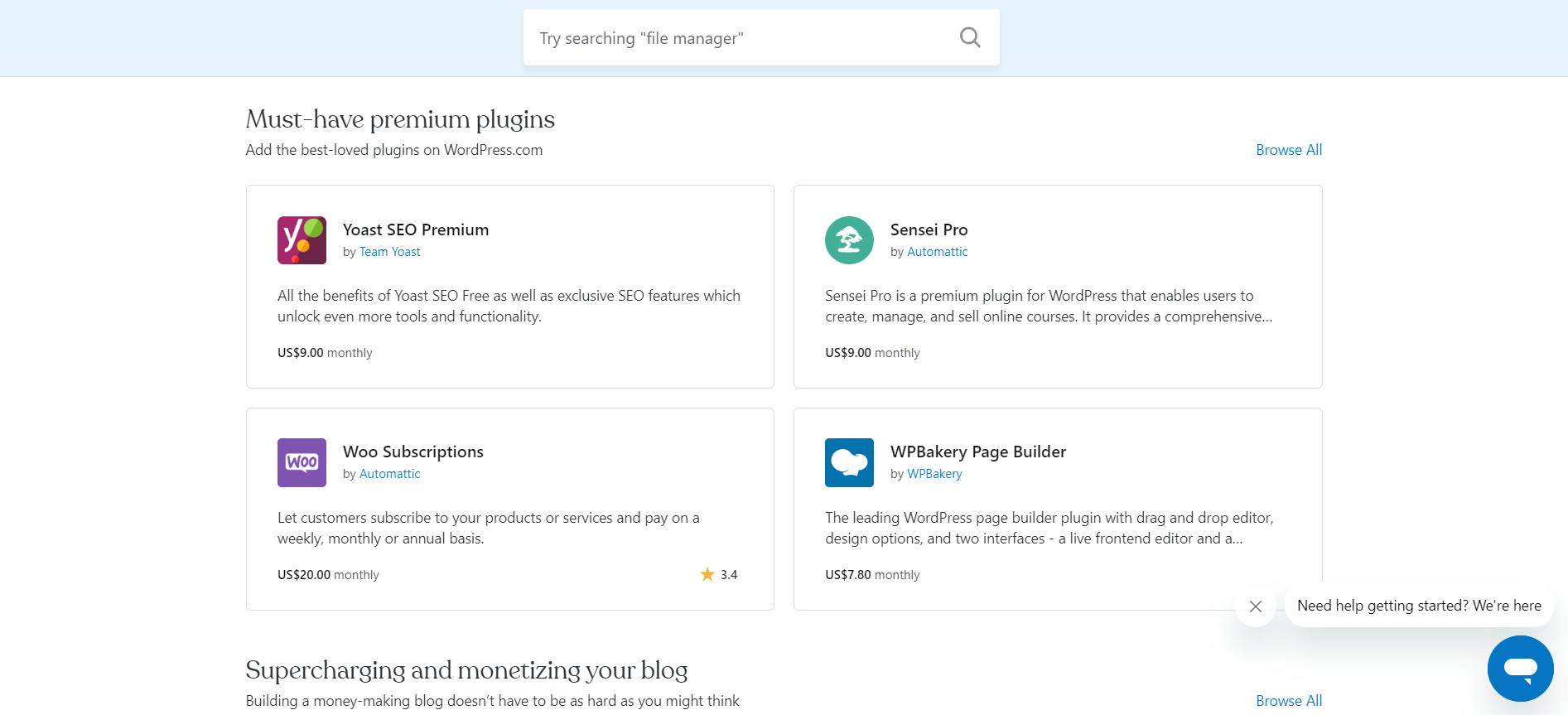
Marketing Features
Marketing featuresAssesses tools and options available for marketing.Score Components:
- SEO tools (40%): Effectiveness of SEO features.
- Marketing automation (30%): Availability and quality of marketing tools.
- Social Media integration (20%): Ease and depth of social media connectivity.
- Email marketing (10%): Quality and usability of email marketing tools.
 8.0
8.0
 7.2
7.2
🏆
Overall Winner: WordPress
. WordPress stands out for its extensive customization options through plugins, making it suitable for a wide range of marketing strategies. Jimdo is strong in its simplicity and ease of use, ideal for those with basic computer skills or limited time.

|

|
|
|---|---|---|
|
SEO Tools |
|
|
|
Email Marketing |
|
|
|
Blogging |
|
|
|
Social Media Integration |
Plugins for direct linking, automatic posting, and social feeds display |
Integration features for various social media platforms |
|
Analytics and Reporting |
In-depth analysis via plugins like Google Analytics for WordPress |
Integrated analytics for monitoring website traffic |
|
Ads and Promotions |
Support for Google Ads and ad management through various plugins |
Tools and features for promotions, but detailed ad management may require external services |
Customer Support
Customer supportEvaluates the quality and availability of support options.Score Components:
- Response time (40%): Speed of support responses.
- Support quality (30%): Effectiveness and helpfulness of the support.
- Availability (20%): Range of support channels (phone, chat, email).
- Resource richness (10%): Quality of self-help and educational materials.
 5.0
5.0
 6.8
6.8
🏆 Winner: Jimdo
. Jimdo takes the lead in this category with a customer support score of 6.8, compared to WordPress’s score of 5.0. Jimdo offers various customer support channels, including email, call center, and social media. However, they do not currently offer live chat support.
On the other hand, WordPress, being an open-source platform, lacks direct customer support. Users can find assistance through community forums, the WordPress codex, hosting provider support, and plugin and theme support. However, this might not be as immediate or direct as some users might need, especially in urgent situations.
Security
SecurityLooks at the platforms’ security measures and data protection.Score Components:
- Data protection (40%): Safeguards for user and customer data.
- SSL and encryption (30%): Implementation of secure connections.
- Compliance (20%): Adherence to industry security standards.
- Regular updates (10%): Frequency of security updates and patches.
 6.7
6.7
 8.3
8.3
🏆
Winner: Jimdo
. Jimdo takes a comprehensive approach to security, with a strong focus on data protection and GDPR compliance. They employ various protective measures such as a strong firewall, DDoS protection, HTTPS encryption for all traffic, and SSL certificates for domains. They also maintain a dedicated team for legal and information security, ensuring a safe environment for users and their websites.
On the other hand, WordPress, being an open-source platform, relies heavily on plugins for security. The approach to private data storage and protection can vary depending on the hosting provider, which may not provide the same level of security as a dedicated website builder like Jimdo.
AI Capabilities
AI capabilitiesMeasures the effectiveness of AI-driven features and tools.Score Components:
- Automation efficiency (40%): Impact of AI on streamlining processes.
- Personalization (30%): AI-driven customization for users or customers.
- AI-Assisted design (20%): Role of AI in website design and functionality.
- Data analysis (10%): Use of AI in interpreting user data and analytics.
 6.1
6.1
 6.0
6.0

|

|
|
|---|---|---|
|
AI Builder |
AI plugins like AI Site Builder and Zita |
Jimdo’s AI website builder |
|
AI Ecommerce features |
AI plugins for marketing, personalization, content management |
AI-powered design suggestions for store layouts and images |
|
AI Content Generation |
AI plugins like AI Engine and GetGenie |
|
|
Additional AI features |
Wide range of AI powered plugins and tools |
Basic AI capabilities focused on website creation |
🏆 Winner: WordPress
. With a score of 6.1, WordPress’s open-source nature allows for integration of various AI plugins, providing a wide range of AI capabilities. Although Jimdo has an AI website builder, its AI capabilities are basic and mostly focused on website creation, earning it a score of 6.0.

User Management
User ManagementAssesses the platforms’ capabilities in managing user roles, permissions, and accessibility.Score Components:
- Role Customization (40%): Flexibility in creating and defining user roles and
permissions. - Ease of Management (30%): User interface and tools for managing users.
- Access Control (20%): Effectiveness of access control measures for different user
levels. - Scalability (10%): Ability to manage a growing number of users efficiently.
 8.8
8.8
 5.8
5.8
🏆 Winner: WordPress
. WordPress and Jimdo offer different approaches to user management.
- WordPress’s editing access depends on user roles and additional controls. User roles, ranging from Super Admin to Subscriber, dictate the level of permissions, while plugins and controls such as role management plugins and revision control offer further customization for specific editing rights and collaboration.
- Jimdo’s Free, Start, and Basic Shop Plans allow website management by a single owner. The Grow Shop Plan permits two editors, including the account owner and one collaborator. The Business Plan extends collaboration to five editors, consisting of the account owner and four collaborators. The Unlimited Plan provides unlimited editors, fostering a collaborative team environment. The VIP Plan, designed for online stores, does not specify a limit on editors for websites.
WordPress User Roles and Access Levels:
| Role | Description | Access Highlights |
|---|---|---|
| Super Admin | Manages the entire network in WordPress Multisite. | Network admin, manage sites, users, plugins, themes. |
| Administrator | Full access within a single site. | Manage plugins, themes, users, all posts/pages. |
| Editor | Manages and publishes content, including others’ posts. | Edit/publish all posts, manage comments, categories. |
| Author | Publishes and manages their own posts. | Write, edit, publish own posts, upload files. |
| Contributor | Writes and edits their own posts but cannot publish. | Write, edit own posts (no file uploads or publishing). |
Additional Features

|

|
|
|---|---|---|
|
SSL Certificate |
|
|
|
Custom Domain |
|
|
|
Free Custom Domain Included |
|
|
|
International Domains |
|
|
|
Mobile Responsive |
|
|
|
Page Speed |
|
|
|
Website Builder Mobile App |
|
|
|
Convert a Website To An App |
|
|
|
Website Analytics |
|
|
|
Multilingual Sites |
|
|
|
Multiple Users |
|
|
User Feedback
WordPress is highly rated on G2 and is praised for its user-friendliness, cost-effectiveness, extensive themes and plugins, customization options, and supportive community. However, some users mention technical challenges, security concerns, a learning curve, and a lack of direct support. Despite these challenges, it remains a widely used and versatile platform, especially beneficial for startups and small businesses.
On the other hand, Jimdo, a website builder platform, receives mixed reviews from users. Positive feedback highlights its ease of use, no-code editor, and quick website development for basic sites. However, criticisms include outdated design, limited templates, and concerns about pricing transparency. Some users appreciate it for simple projects, while others find it lacking for more complex websites. Common issues include restricted SEO in the free tier, support limitations, and late responses. The overall impression suggests Jimdo may suit beginners but could be less ideal for those seeking advanced features or modern designs.
The making of this blog
We followed a clear, step-by-step process to write and research this article.
FAQ
Which platform is better for beginners, WordPress or Jimdo?
Can I use both WordPress and Jimdo for ecommerce?
How do WordPress and Jimdo differ in terms of customization and design flexibility?
What are the major differences in pricing and value between WordPress and Jimdo?
Which platform offers better customer support, WordPress or Jimdo?










